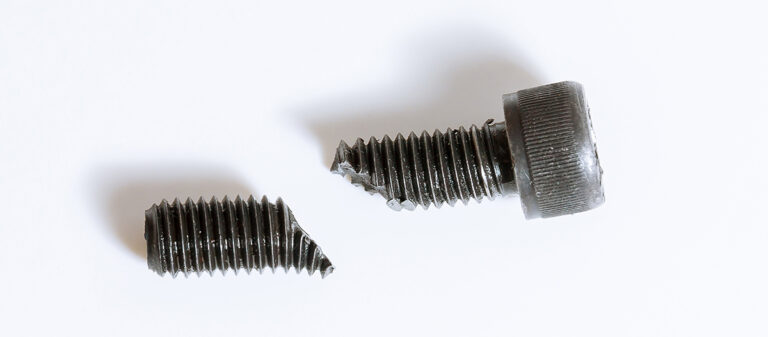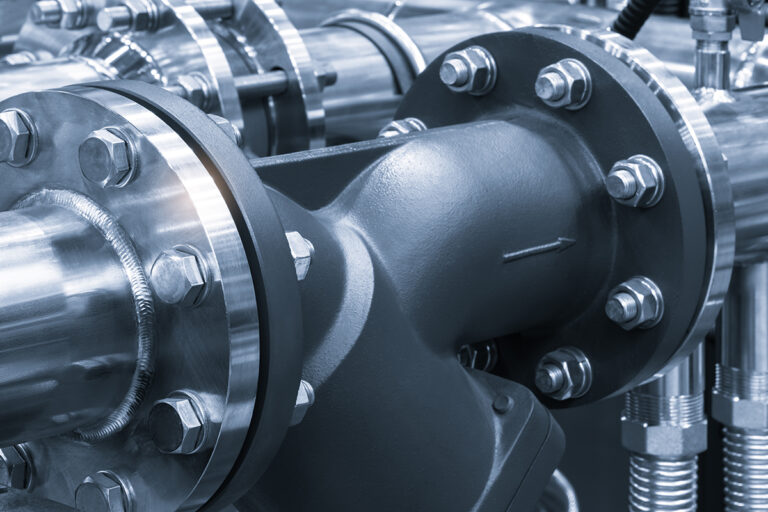Thermal conductivity is a material property that measures the ability of a substance to conduct heat. While it is a critical consideration in engineering and material science, its role in the functionality and durability of security screws is often overlooked. This blog explores how thermal conductivity affects security screws and why it matters for their performance in applications.
What is Thermal Conductivity?
Thermal conductivity refers to the rate at which heat passes through a material. It is expressed in units of watts per meter kelvin (W/m.K)
High Thermal Conductivity: Materials like copper and aluminium quickly transfer heat.
Low Thermal Conductivity: Materials like stainless steel and titanium transfer heat slowly, making them better insulators.
In the context of security screws, the thermal conductivity of the screw material can influence its behaviour under varying temperature conditions, including thermal expansion, strength, and longevity.
How Thermal Conductivity Affects Security Screws
1. Thermal Expansion and Contraction
Materials expand when heated and contract when cooled. The degree of thermal expansion depends on the material’s thermal conductivity and thermal expansion coefficient.
- High-Conductivity Materials (e.g. Aluminium): These materials can experience significant thermal expansion, potentially loosening screws in high temperature applications.
- Low-Conductivity Materials (e.g. Stainless Steel): These are less prone to expansion, maintaining a more stable fit under fluctuating temperatures.
Impact on Security Screws
In outdoor environments or machinery exposed to heat, security screws with high thermal conductivity may loosen over time, compromising their tamper-resistant properties. Low-conductivity materials are preferred in such scenarios for their stability.
2. Strength at Elevated Temperatures
The strength of a material often decreases as temperature increases, and this is influenced by the material’s ability to dispel heat.
- High-Conductivity Metals (e.g. Copper): They cool down quickly, retaining more strength in applications where rapid heat dissipation is needed.
- Low-Conductivity Metals (e.g. Titanium): These retain heat longer, which can reduce strength in prolonged high temperature environments.
Impact on Security Screws
In industries like aerospace or automotive, where screws may face extreme heat, high conductivity materials are often paired with coating to balance strength retention and durability.
3. Corrosion Resistance
Thermal conductivity indirectly affects corrosion resistance. Frequent heating and cooling cycles can accelerate the breakdown of protective coatings on screws, exposing the base material to environmental factors.
- Stainless Steel: A low thermal conductivity material that resists corrosion well, even when coatings degrade.
- Carbon Steel: Higher conductivity but prone to corrosion if not adequately protected.
Impact on Security Screws
For outdoor applications, screws with low conductivity and high corrosion resistance, such as stainless steel, are ideal.
4. Tamper Resistance Under Thermal Stress
Security screws are often used in applications where they might face intentional tampering using heat (e.g. blowtorches).
- High-Conductivity Screws: Easier to heat and may deform under high temperatures, compromising their security.
- Low-Conductivity Screws: Resist rapid heating, making them harder to tamper with using thermal methods.
Impact on Security Screws
Materials like titanium and stainless steel are excellent for high security applications due to their low thermal conductivity and resistance to tampering.
Choosing the Right Material for Security Screws
1. Stainless Steel
Thermal Conductivity: Low (~16 W/m.K)
Benefits: Excellent corrosion resistance, moderate strength retention, low thermal expansion.
Applications: Outdoor installations, marine environments, and areas prone to tampering.
2. Aluminium
Thermal Conductivity: High (~205 W/m.K)
Benefits: Lightweight and cost effective.
Drawbacks: High thermal expansion and reduced strength at elevated temperatures.
Applications: Electronics and lightweight structures where heat dissipation is critical.
3. Titanium
Thermal Conductivity: Very low (~7 W/m.K)
Benefits: High strength to weight ratio, excellent corrosion resistance, and tamper resistance.
Applications: Aerospace, defence, and high security installations.
4. Carbon Steel
Thermal Conductivity: Moderate (~50 W/m.K)
Benefits: High strength and cost effective.
Drawbacks: Susceptible to corrosion without coatings.
Applications: General-purpose uses with proper protection.
Best Practices for Using Security Screws in High-Temperature Environments
Select Low-Conductivity Materials: Stainless steel or titanium are ideal for stability and tamper resistance.
Use Protective Coatings: Prevent corrosion caused by thermal stress with zinc plating, black oxide, or specialised coatings.
Regular Inspections: In high stress environments, inspect screws periodically for signs of wear or loosening.
Consult Material Experts: For critical applications, seek professional guidance to match materials with operational conditions.
Conclusion
Thermal conductivity is a crucial factor in the performance of security screws, especially in applications exposed to fluctuating temperatures or thermal tampering. By understanding the relationship between thermal properties and material behaviour, you can choose the right security screw to ensure durability, safety, and peace of mind.
Our team of experts are ready to assist you in choosing the most suitable security screws for your specific requirements. We’re here to help with the secrets of security screw thread types.
Contact us today on 1800 776 565.
Secure Your Assets with Sentinel Group Security Screws.
Choose Sentinel Group Security & Customised Fastening Solutions.




